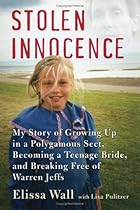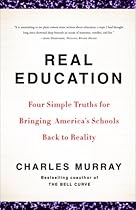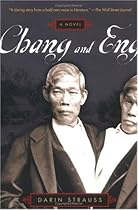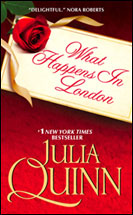I did not enjoy A Gate at the Stairs by Lorrie Moore. I really thought I was going to love this book, so I was disappointed. I'll get to it's faults in a minute, but I will say that despite ending up not liking it, there were a few good things. First, I read it all in one day, quickly, so it was obviously interesting enough to keep me from dropping it for something else. Moore's writing style does pull you in and flows well, and you feel like you just dropped in for a year in the life of the main character, Tassie. I also think she does a wonderful job with writing realistic dialogue. Her characters talk over each other, interrupt, miss each others' points, steer the conversations in new directions, repeat themselves. They sound like realy people. I believe that's one of the main reasons why this book was been well reviewed for the most part.
However, the plot holes were astounding! And none of the characters were likable. They weren't just like real people who have faults that you might not like, they were just all-around not likable. It made it hard to care what happens to them.
Part of the reason I didn't like the characters is because they were all liberals, the really stupid kind of liberals. Moore really isn't flattering in describing them, which I found odd since I'm sure she's liberal herself, as are most of the people who review books. For example, one of the main issues in the book is about adoption. It addresses the fact that most white people don't want to adopt black babies. A white couple in the story announces that they don't care about all that and starts the process to adopt a biracial girl, and then they hire Tassie to babysit. The couple starts a group for biracial families. When this group gets together, they sound like a bunch of total idiots and never do anything. Eventually, the couple seems to think it's too much trouble for them to have this biracial daughter, that they shouldn't have done it. This story bothered me on two levels. First, the way adoption was written about in general was very unflattering, enough that if someone read this when they were considering adopting it could easily push them away. Second, it definately made it seem like a bad idea to adopt children of other races, although at the same time it lectures people on wanting to adopt babies from China before they'd adopt a black baby from the same town. It wanted it both ways. You're racist if you don't want the black baby, but then you're doing it wrong if you adopt it and you're white. So you just shouldn't adopt at all? We should just abandon the black babies if there aren't enough black families willing and able to adopt? I'm not sure that's what her point was, but that's how it came across.
It also portrayed liberals as a bunch of snobs, oddly enough: "This was the sort of snobbery I noticed even among the most compassionate Democrats." One of liberals serves endangered species in her restaurant. She justifies this by saying if people want to eat them, they'll try to save them. What kind of sense does that make? And how was she able to serve them up anyway? Shouldn't that be illegal? She also says racist things, such as "Correct subject-verb agreement is best when children are learning language, so be careful what you sing. It's an issue when raising kids of color. A simple grammatical matter can hold them back in life." As though this is only an issue in people of color? They're so stupid that teaching them a silly kids song will stunt them for life, but it's not a issue with white kids?
SPOILER ALERT:
Okay, about the plot holes. The worst one centers around the family Tassie babysits for. A "shocking" secret is revealed toward the end, but it's completely obvious that they murdered someone from comments made throughout the book, so it's not surprising when you get to it. And what actually happened was so stupid and didn't even make sense, that I found myself laughing at the fact that this was actually printed and not fixed by an editor or something that it wasn't even remotely sad. The couple used have a child, who was driving them crazy in the car one day when he's 4. They stop the car on a toll highway and make him get out. Okay, they scared him, whatever. But then they drive off! First of all, who would do that? Secondly, they immediately panic, but for some reason now can't stop even though they stopped two seconds ago. The wife actually starts yelling at the husband to stop before they even had time to actually move at all. But for some reason now, they can't stop and have to go up forever before they can turn around and come back, and the kid ends up getting hit by a car. How stupid is that? The way it was written didn't even make any sense. I was trying to follow it and make it make sense instead of caring about what was happening. Ugh.
And, one of the other main points in the story is that this all takes place right after 9/11. Yet none of the characters care. When Tassie's brother mentions joining the military, she's all, "well, at least it's peacetime." What? Who thought that in first few months after 9/11? And it's totally shocking to everyone when he dies. Like that's not a possibility when someone goes off to war. I remember that year, and I was the same age as Tassie is in the book - 20. I didn't forget about it two days later. I didn't think it wasn't a big deal when friends and family members joined the military. I was a lot more supportive than her family was, but I didn't act like it didn't matter. And most of the people who joined up that year didn't do so for the college tuition. They did it because of 9/11. Her brother does it because his grades were bad and this will pay for college, and everyone thinks it horrible that he dies because he was just trying to get tuition money. What, do they think the military is just a work study problem? That there should be no risk of dying? What is wrong with these people?
And Tassie's stupid enough during all of this to date this "Brazillian" guy who turns out to be Arab, and probably a terrorist. She's too stupid to realize that he's actually Arabic and that doesn't like her much, and they make jokes about 9/11 and the war and things, jokes that no one I know would have made that soon afterward. And she does nothing when he abruptly sells everything in his apartment and tells her not to tell anyone about him if they ask. There were about a million signs of him being about to do a suicide bombing or something and she does nothing.












